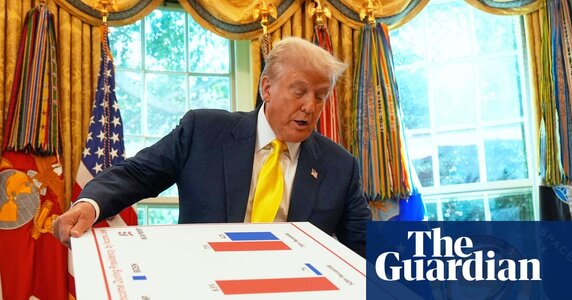- Messages
- 3,890

A critique of pure stupidity: understanding Trump 2.0
If the first term of Donald Trump provoked anxiety over the fate of objective knowledge, the second has led to claims we live in a world-historical age of stupid, accelerated by big tech. But might there be a way out?
The first and second Trump administrations have provoked markedly different critical reactions. The shock of 2016 and its aftermath saw a wave of liberal anxiety about the fate of objective knowledge, not only in the US but also in Britain, where the Brexit referendum that year had been won by a campaign that misrepresented key facts and figures. A rich lexicon soon arose to describe this epistemic breakdown. Oxford Dictionaries declared “post-truth” their 2016 word of the year; Merriam-Webster’s was “surreal”. The scourge of “fake news”, pumped out by online bots and Russian troll farms, suggested that the authority of professional journalism had been fatally damaged by the rise of social media. And when presidential counsellor Kellyanne Conway coined the phrase “alternative facts” a few days after Trump’s inauguration in early 2017, the mendacity of the incoming administration appeared to be all but official.
The truth panic had the unwelcome side-effect of emboldening those it sought to oppose. “Fake” was one of Trump’s favourite slap-downs, especially to news outlets that reported unwelcome facts about him and his associates. A booming Maga media further amplified the president’s lies and denials. The tools of liberal expertise appeared powerless to hold such brazen duplicity to account. A touchstone of the moment was the German-born writer and philosopher Hannah Arendt, who observed in her 1951 book The Origins of Totalitarianism that “the ideal subject of totalitarian rule is not the convinced Nazi or the dedicated communist, but people for whom the distinction between fact and fiction … no longer exists”.
In 2025, the denunciations have a different flavour. To many of us, the central problem is that we live not so much in a time of lies as one of stupidity. This diagnosis has credibility across the political spectrum. In January, the centrist columnist David Brooks wrote a column for the New York Times titled “The Six Principles of Stupidity”. The new administration, he wrote, was “behaving in a way that ignores the question: What would happen next?”
In March, Hillary Clinton – not, perhaps, ideal counsel – weighed in with an op-ed in the same paper, with the headline: “How Much Dumber Will This Get?” “It’s not the hypocrisy that bothers me,” Clinton wrote, “it’s the stupidity.” And in April, the Marxist writer and intellectual Richard Seymour posted an essay on “Stupidity as Historical Force”. In place of Arendt, Seymour quoted Trotsky: “When the political curve goes down, stupidity dominates social thinking” – once the forces of reaction predominate, so reason gives way to insults and prejudice.
Trump’s lying is no less constant or blatant than in 2016, but by now it feels familiar, already priced in. What more is there to say about the “war on truth” a decade into Trump’s political career?
Still, at least two aspects of his second administration are newly and undoubtedly “stupid”. One is shambolic incompetence of a degree that led the editor of the Atlantic magazine to be accidentally added to a Signal group chat about US military operations, a group whose other members included the vice-president and the secretary of defence. A second is its incomprehensible determination to press ahead with policies – such as tariffs and the defunding of medical research – that will do deep harm without any apparent gain, even for Trump’s backers and clients, still less his voters.

